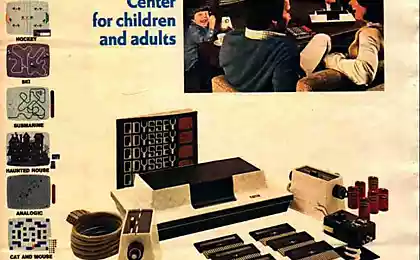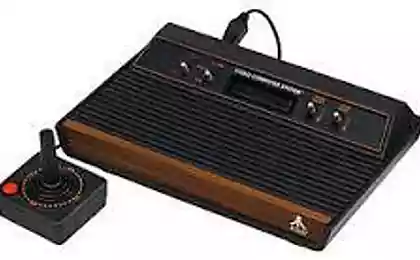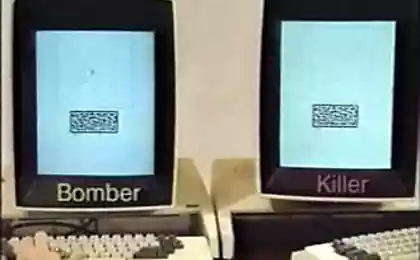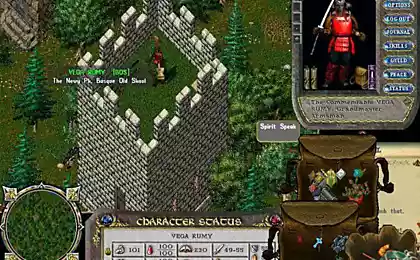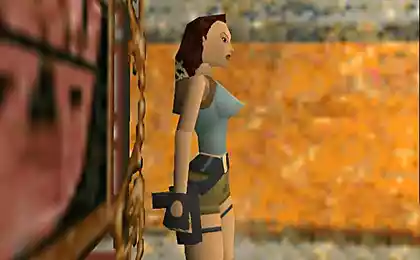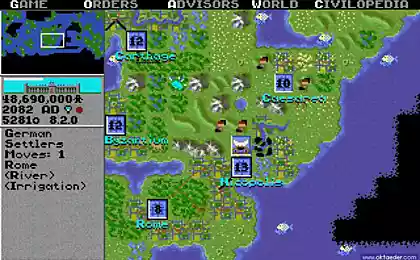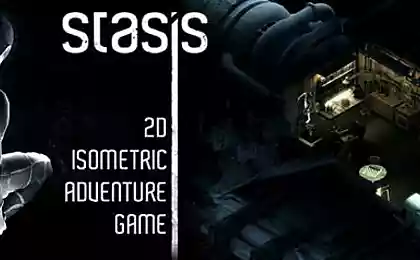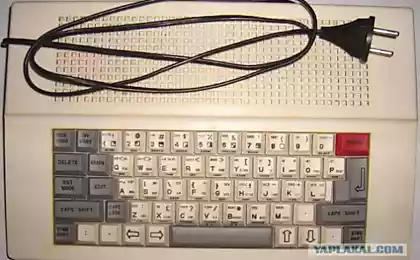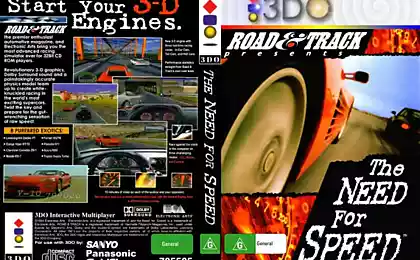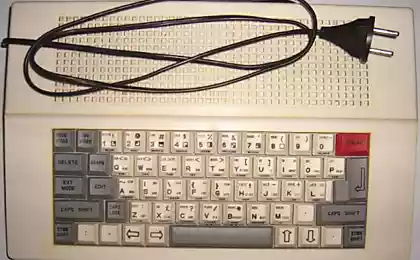1425
The museum and the history of video games
All love to play. Games are very different - children and adults, educational and developmental, intellectual and sports, gambling and not. With the advent of the computer and video games have appeared, in which today is played tens of millions of people. For some, video and computer games - it is an opportunity to disconnect from everyday problems and constant stress for some it is a permanent form of recreation, and for some it's an opportunity to earn an additional billion. Let's now look at the Berlin Museum of computer games, we shall understand the history and talk about the problems.
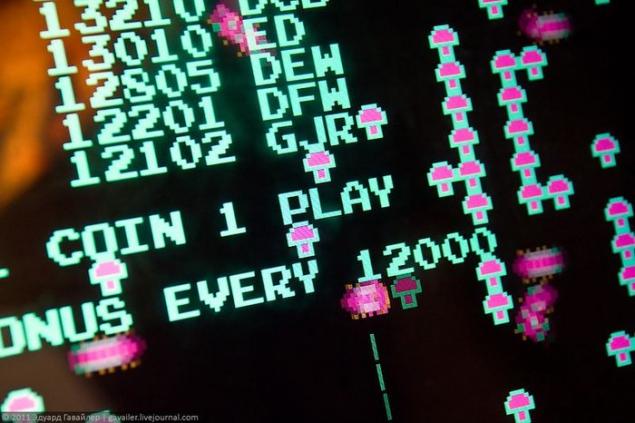
Many video games are called computer. Does it make sense to distinguish between these concepts, you decide. By and large, it does not matter as to call such games. The only difference: "computer" play on the computer, and "video" through a special set-top box.
When there was this kind of unproductive activity, changing managed images on the screen, attracting the attention of millions of people and completely burns the time? Let's look at the museum computer games (it. Computerspielemuseum Berlin), which opened in January this year, and we will investigate.
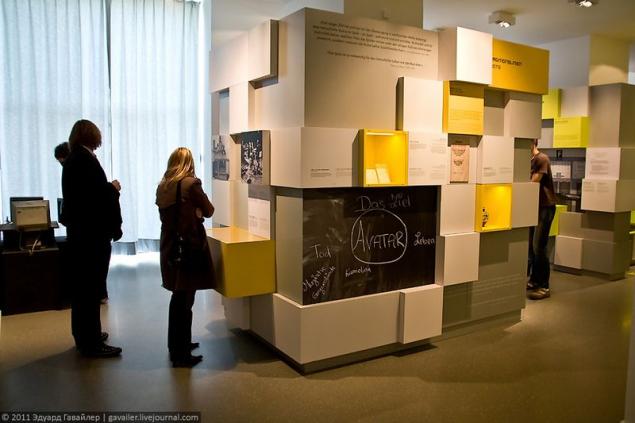
When there was this kind of unproductive activity, changing managed images on the screen, attracting the attention of millions of people and completely burns the time? Let's look at the museum computer games (it. Computerspielemuseum Berlin), which opened in January this year, and we will investigate. & Quot; / & gt;
The first attempts to create computer games began more than 50 years ago. Father of video games considered to be a British scientist Arthur Douglas, who in 1952, demonstrating the capabilities of your computer, provided the thesis committee at Cambridge gaming program called Ou-Ex-Ou (Eng. OXO, «Tic-Tac-Toe") for EDSAC (Eng. Electronic Delay Storage Automatic Computer).
Since the program did not play in the ordinary sense of the word, is credited with the first video game to another scientist, namely the American physicist Willy Higinbotemu. In 1958, he developed a game called "Tennis for Two". The screen of the oscilloscope a ball bouncing from a horizontal line at the bottom of the screen, and fought a short line at the top part. To use the remote control buttons "right" and "left».
In 1961, a group of students from EmAyTi (MIT) created the first interactive game "Space War" (eng. Spacewar). His pastimes, perceives nothing more than fun, the developers have not patented, because computers at the time were, to put it mildly, not the cheap pleasure.
In 1972, Bushnell and Dabney Americans (Nolan Bushnell, Ted Dabney) founded the company Atari (Eng. Atari), which was the first company for the production of video games. The first successful product of the company has already become a famous tennis game, called Pong (Eng. Pong).
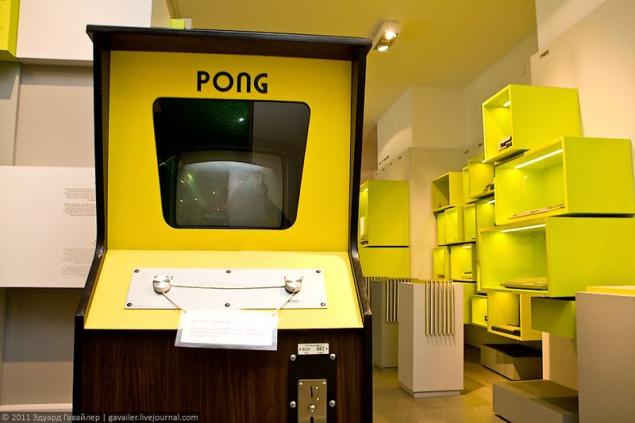
Since the program did not play in the ordinary sense of the word, is credited with the first video game to another scientist, namely the American physicist Willy Higinbotemu. In 1958, he developed a game called "Tennis for Two". The screen of the oscilloscope a ball bouncing from a horizontal line at the bottom of the screen, and fought a short line at the top part. To use the remote control buttons "right" and "left».
In 1961, a group of students from EmAyTi (MIT) created the first interactive game "Space War" (eng. Spacewar). His pastimes, perceives nothing more than fun, the developers have not patented, because computers at the time were, to put it mildly, not the cheap pleasure.
In 1972, Bushnell and Dabney Americans (Nolan Bushnell, Ted Dabney) founded the company Atari (Eng. Atari), which was the first company for the production of video games. The first successful product of the company has already become a famous tennis game, called Pong (Eng. Pong). & quot; / & gt;
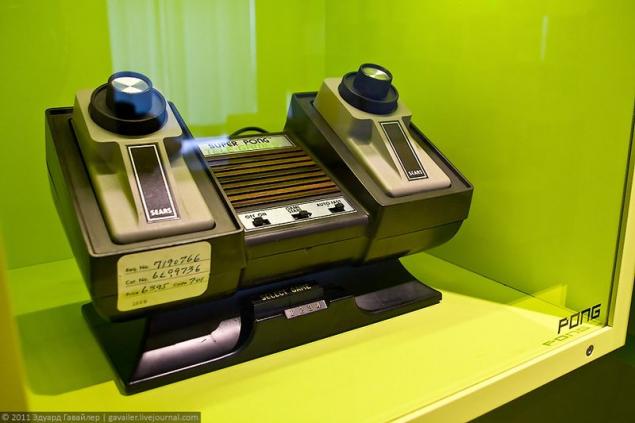
After the success of Bushnella and Dabney, games and video game consoles were developed a variety of firms. In 1980 he was born Pac-Man (Eng. Pac-Man), the most famous running around the maze and eat the balls "Gingerbread Man».
By the mid-eighties, the market leader in video games has changed. In place of the company Nintendo Atari came (Eng. Nintendo), offer better games. The heyday of the era of video game came in the nineties. Attachments of various types and manufacturers began to appear in almost every home.
Youth has become for days to spend time consoles and computers. Was born game genres like RPGs (role playing games), strategy, RTS (real time strategy), shooters ("shooter"), simulators and so on. N.
Japanese console Sega (SEGA).
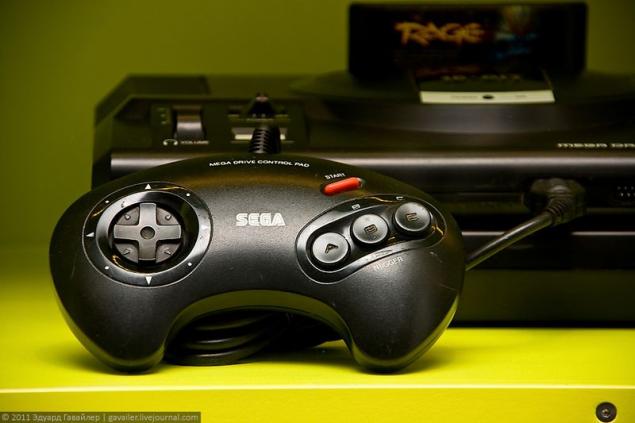
By the mid-eighties, the market leader in video games has changed. In place of the company Nintendo Atari came (Eng. Nintendo), offer better games. The heyday of the era of video game came in the nineties. Attachments of various types and manufacturers began to appear in almost every home.
Youth has become for days to spend time consoles and computers. Was born game genres like RPGs (role playing games), strategy, RTS (real time strategy), shooters ("shooter"), simulators and so on. N.
Japanese console Sega (SEGA). & quot; / & gt;
American 16-bit consoles, Super Nintendo (Super Nintendo, Super NES). Very similar to the widely known in Russia consoles Dandy.
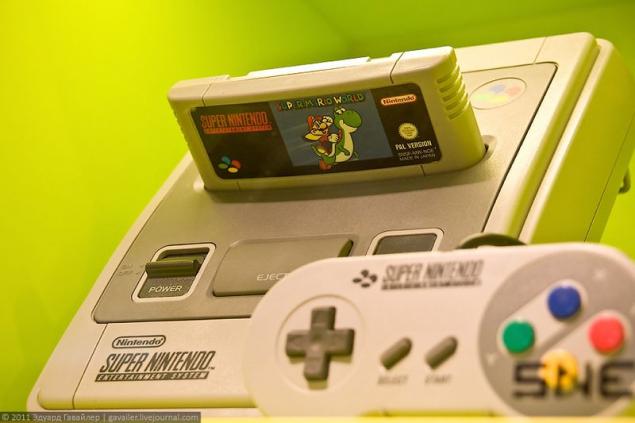
The first game console from Sony (Sony PlayStation), 1994
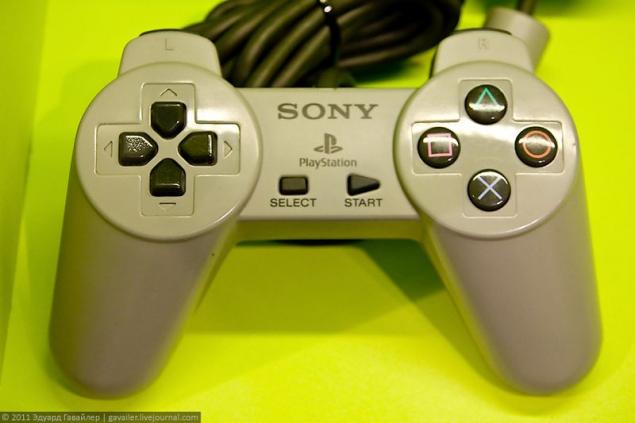
Dreamcast (Dreamcast) - latest game console of SEGA.
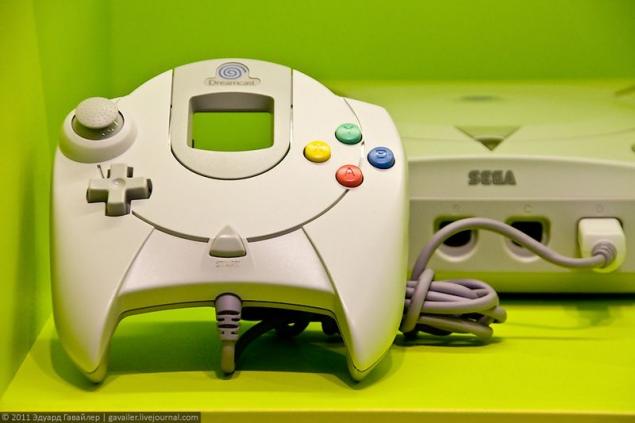
To date, the industry giants in the video attachments are Nintendo, Sony and Microsoft, and the latest trends: the use of 3D, the use of new media (Blu ray, HD DVD), the use of wireless controllers, the ability to use motion to control the game and others.
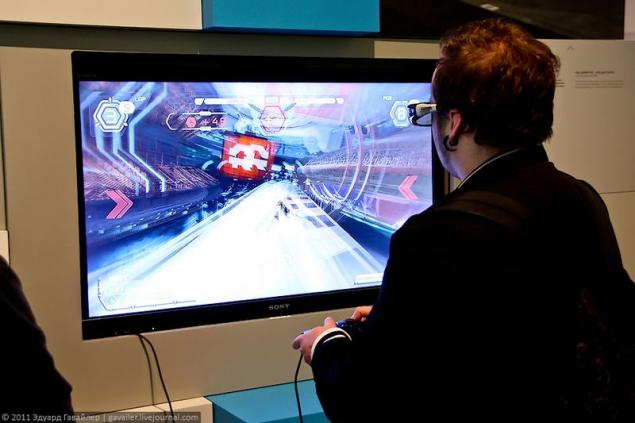
A few photos from the museum.
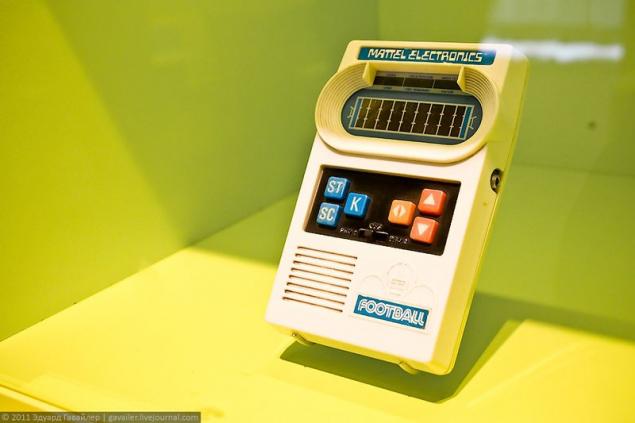
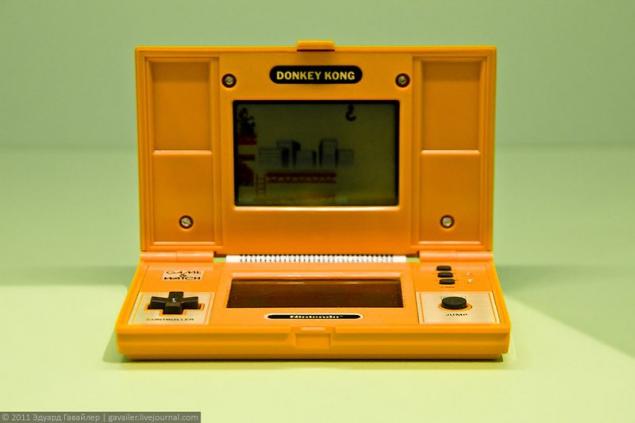
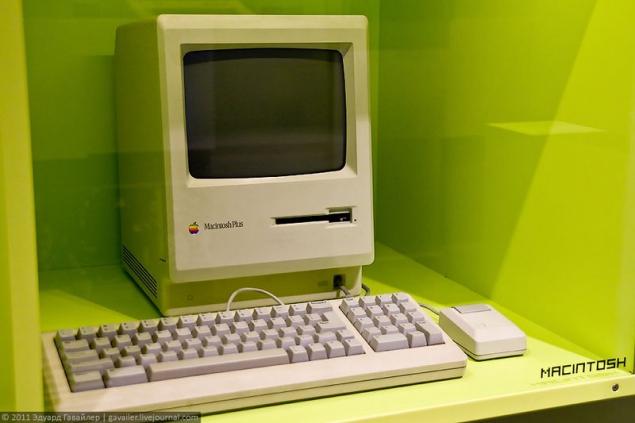
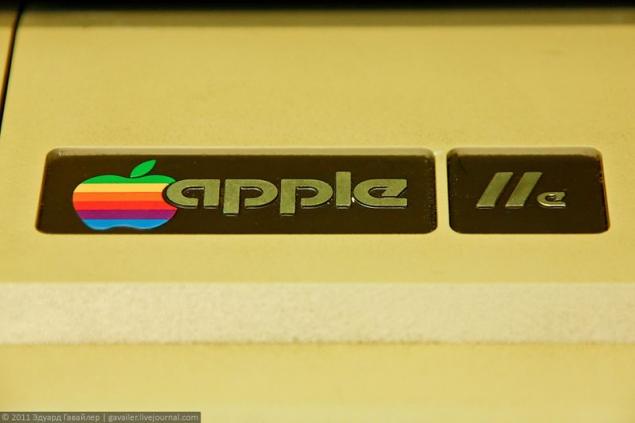
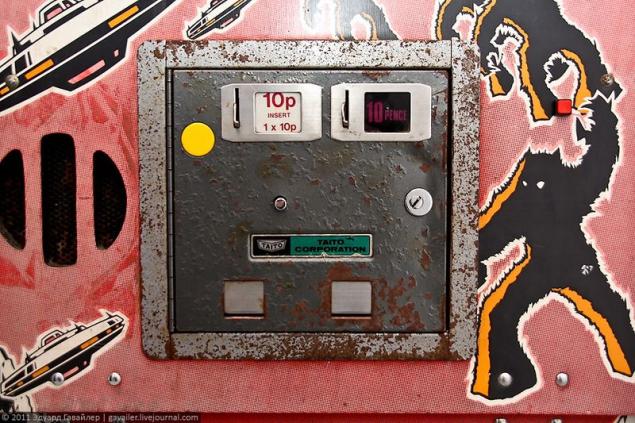
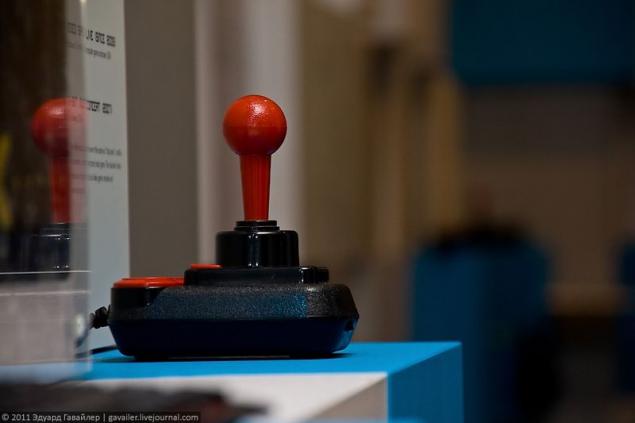

The gaming machine «Computerspace», 1971. The first commercially produced game.
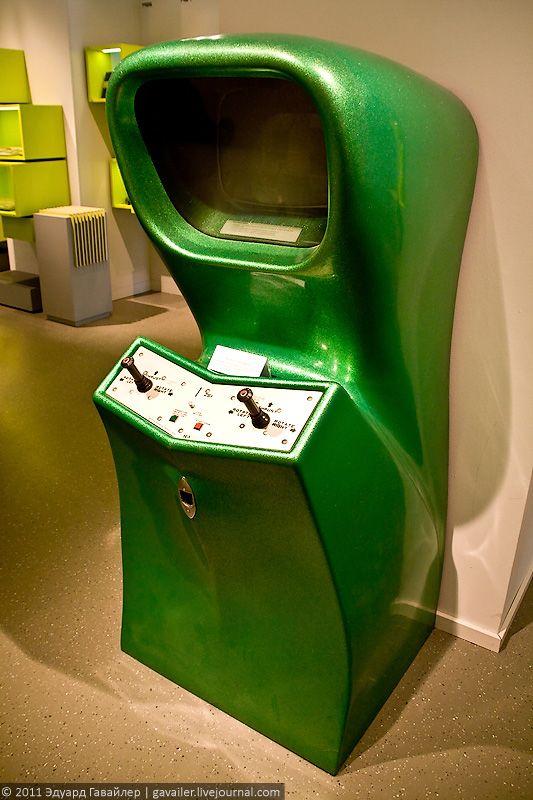
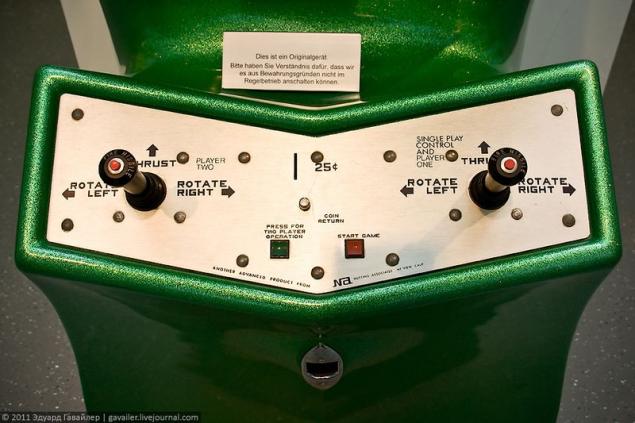
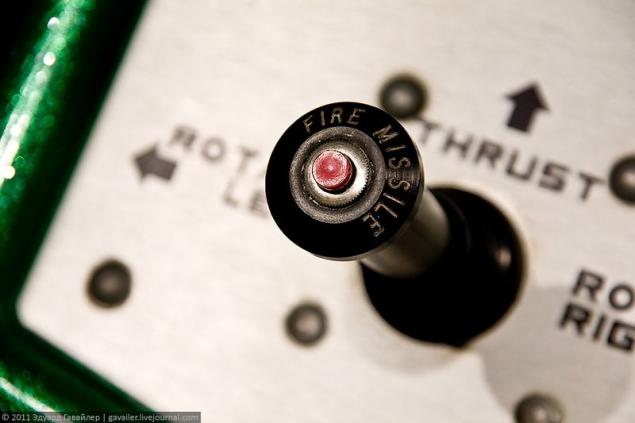
The game of Pong in the 21st century with the "feedback". Painstation 2001.
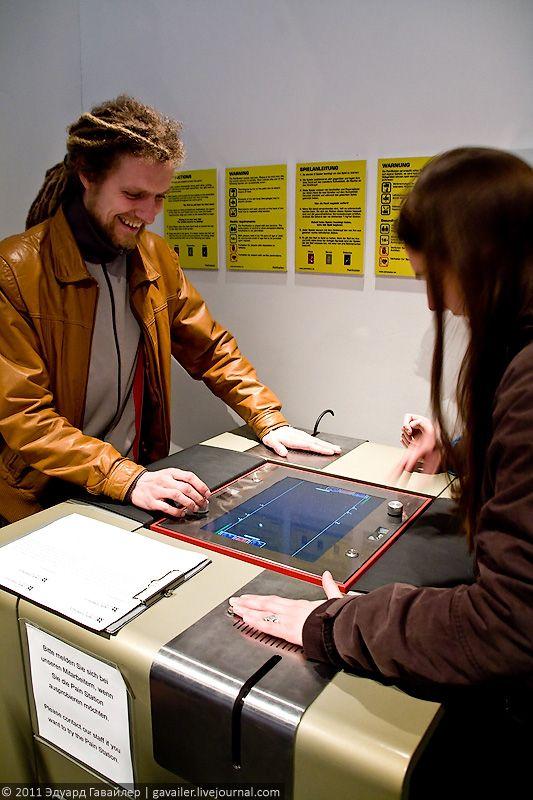
Opponents stand on opposite sides of the installation. One hand, they put on a "sore point", call it so, and with the other hand run the game. If a player has not beaten off the ball, it activates "pain zone". As punishment, the player gets a few blows with a rubber tourniquet. Furthermore, as an alternative, the zone, on which rests the hand becomes hot.
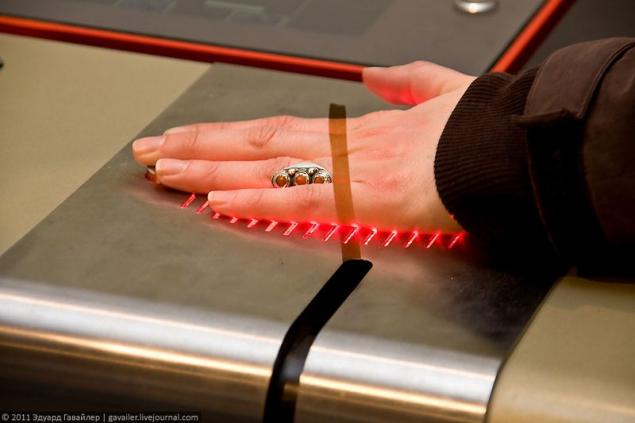
Game exercise bike.
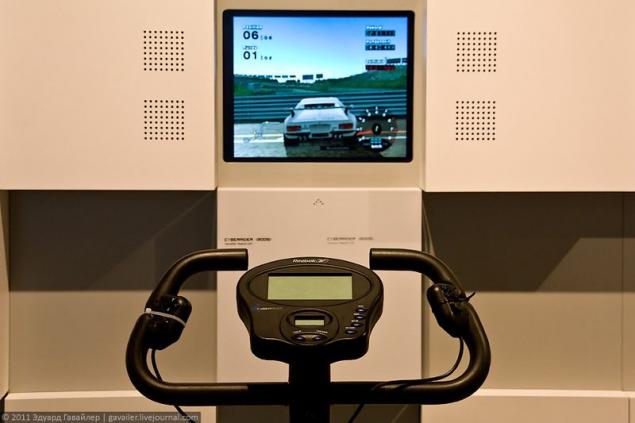
Giant joystick.
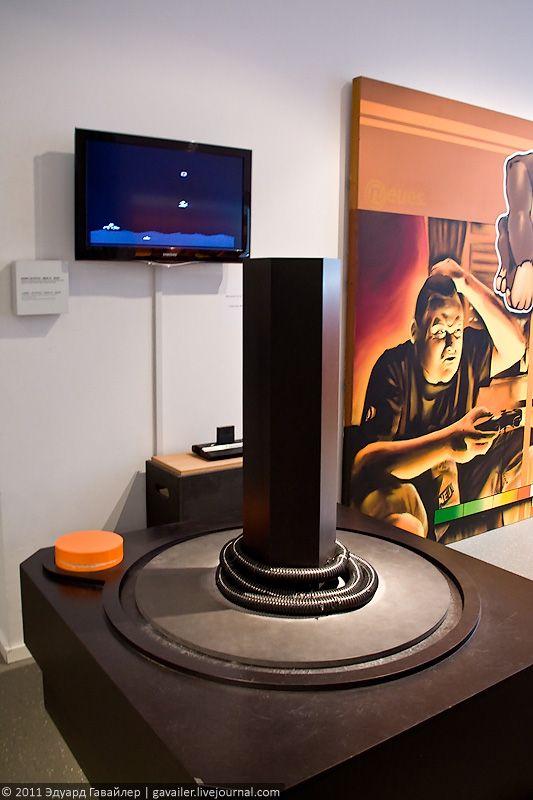
Garry Kasparov, the chess match against a supercomputer "Deep Blue", the ability to evaluate 200 million positions per second, in 1996. Kasparov won with a score of 4: 2.
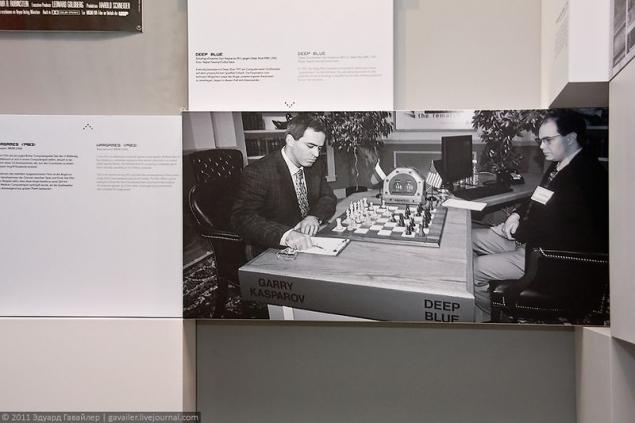
Here's an interesting museum.

And how do you feel about the computer and video games? Played before? You play now? As part of? What play? What consoles? What do you think about the negative impact of games on the psyche? I propose to express their opinion in the comments and debate.
via source

Many video games are called computer. Does it make sense to distinguish between these concepts, you decide. By and large, it does not matter as to call such games. The only difference: "computer" play on the computer, and "video" through a special set-top box.
When there was this kind of unproductive activity, changing managed images on the screen, attracting the attention of millions of people and completely burns the time? Let's look at the museum computer games (it. Computerspielemuseum Berlin), which opened in January this year, and we will investigate.

When there was this kind of unproductive activity, changing managed images on the screen, attracting the attention of millions of people and completely burns the time? Let's look at the museum computer games (it. Computerspielemuseum Berlin), which opened in January this year, and we will investigate. & Quot; / & gt;
The first attempts to create computer games began more than 50 years ago. Father of video games considered to be a British scientist Arthur Douglas, who in 1952, demonstrating the capabilities of your computer, provided the thesis committee at Cambridge gaming program called Ou-Ex-Ou (Eng. OXO, «Tic-Tac-Toe") for EDSAC (Eng. Electronic Delay Storage Automatic Computer).
Since the program did not play in the ordinary sense of the word, is credited with the first video game to another scientist, namely the American physicist Willy Higinbotemu. In 1958, he developed a game called "Tennis for Two". The screen of the oscilloscope a ball bouncing from a horizontal line at the bottom of the screen, and fought a short line at the top part. To use the remote control buttons "right" and "left».
In 1961, a group of students from EmAyTi (MIT) created the first interactive game "Space War" (eng. Spacewar). His pastimes, perceives nothing more than fun, the developers have not patented, because computers at the time were, to put it mildly, not the cheap pleasure.
In 1972, Bushnell and Dabney Americans (Nolan Bushnell, Ted Dabney) founded the company Atari (Eng. Atari), which was the first company for the production of video games. The first successful product of the company has already become a famous tennis game, called Pong (Eng. Pong).

Since the program did not play in the ordinary sense of the word, is credited with the first video game to another scientist, namely the American physicist Willy Higinbotemu. In 1958, he developed a game called "Tennis for Two". The screen of the oscilloscope a ball bouncing from a horizontal line at the bottom of the screen, and fought a short line at the top part. To use the remote control buttons "right" and "left».
In 1961, a group of students from EmAyTi (MIT) created the first interactive game "Space War" (eng. Spacewar). His pastimes, perceives nothing more than fun, the developers have not patented, because computers at the time were, to put it mildly, not the cheap pleasure.
In 1972, Bushnell and Dabney Americans (Nolan Bushnell, Ted Dabney) founded the company Atari (Eng. Atari), which was the first company for the production of video games. The first successful product of the company has already become a famous tennis game, called Pong (Eng. Pong). & quot; / & gt;

After the success of Bushnella and Dabney, games and video game consoles were developed a variety of firms. In 1980 he was born Pac-Man (Eng. Pac-Man), the most famous running around the maze and eat the balls "Gingerbread Man».
By the mid-eighties, the market leader in video games has changed. In place of the company Nintendo Atari came (Eng. Nintendo), offer better games. The heyday of the era of video game came in the nineties. Attachments of various types and manufacturers began to appear in almost every home.
Youth has become for days to spend time consoles and computers. Was born game genres like RPGs (role playing games), strategy, RTS (real time strategy), shooters ("shooter"), simulators and so on. N.
Japanese console Sega (SEGA).

By the mid-eighties, the market leader in video games has changed. In place of the company Nintendo Atari came (Eng. Nintendo), offer better games. The heyday of the era of video game came in the nineties. Attachments of various types and manufacturers began to appear in almost every home.
Youth has become for days to spend time consoles and computers. Was born game genres like RPGs (role playing games), strategy, RTS (real time strategy), shooters ("shooter"), simulators and so on. N.
Japanese console Sega (SEGA). & quot; / & gt;
American 16-bit consoles, Super Nintendo (Super Nintendo, Super NES). Very similar to the widely known in Russia consoles Dandy.

The first game console from Sony (Sony PlayStation), 1994

Dreamcast (Dreamcast) - latest game console of SEGA.

To date, the industry giants in the video attachments are Nintendo, Sony and Microsoft, and the latest trends: the use of 3D, the use of new media (Blu ray, HD DVD), the use of wireless controllers, the ability to use motion to control the game and others.

A few photos from the museum.







The gaming machine «Computerspace», 1971. The first commercially produced game.



The game of Pong in the 21st century with the "feedback". Painstation 2001.

Opponents stand on opposite sides of the installation. One hand, they put on a "sore point", call it so, and with the other hand run the game. If a player has not beaten off the ball, it activates "pain zone". As punishment, the player gets a few blows with a rubber tourniquet. Furthermore, as an alternative, the zone, on which rests the hand becomes hot.

Game exercise bike.

Giant joystick.

Garry Kasparov, the chess match against a supercomputer "Deep Blue", the ability to evaluate 200 million positions per second, in 1996. Kasparov won with a score of 4: 2.

Here's an interesting museum.

And how do you feel about the computer and video games? Played before? You play now? As part of? What play? What consoles? What do you think about the negative impact of games on the psyche? I propose to express their opinion in the comments and debate.
via source
